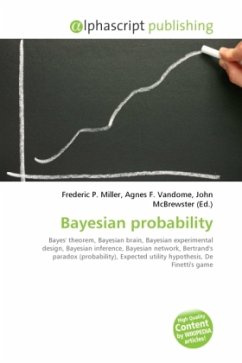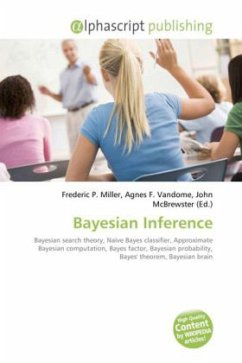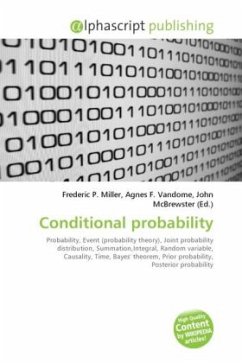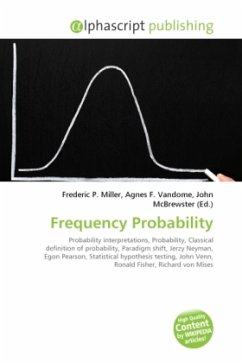
Bayesian probability
Versandkostenfrei!
Versandfertig in 6-10 Tagen
23,99 €
inkl. MwSt.

PAYBACK Punkte
12 °P sammeln!
Bayesian probability is one of the most popular interpretations of the concept of probability. The Bayesian interpretation of probability can be seen as an extension of logic that enables reasoning with uncertain statements. To evaluate the probability of a hypothesis, the Bayesian probabilist specifies some prior probability, which is then updated in the light of new relevant data. The Bayesian interpretation provides a standard set of procedures and formula to perform this calculation. Bayesian probability interprets the concept of probability as a measure of a state of knowledge in contrast...
Bayesian probability is one of the most popular interpretations of the concept of probability. The Bayesian interpretation of probability can be seen as an extension of logic that enables reasoning with uncertain statements. To evaluate the probability of a hypothesis, the Bayesian probabilist specifies some prior probability, which is then updated in the light of new relevant data. The Bayesian interpretation provides a standard set of procedures and formula to perform this calculation. Bayesian probability interprets the concept of probability as a measure of a state of knowledge in contrast to interpreting it as a frequency or a physical property of a system. Its name is derived from the 18th century statistician Thomas Bayes, who pioneered some of the concepts. Broadly speaking, there are two views on Bayesian probability that interpret the state of knowledge concept in different ways. According to the objectivist view, the rules of Bayesian statistics can be justified by requirements of rationality and consistency and interpreted as an extension of logic












